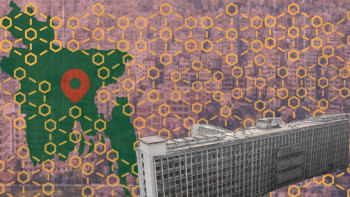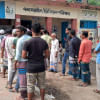Expedite local government services

It is quite concerning that over six months after the political changeover on August 5, the pace of work at the local government ministry and its affiliated bodies—from city corporations to union parishads—remains slow. According to a report in Samakal, not a single new development project has been undertaken at the local level during this period. Besides, essential services such as road repairs, mosquito control, sanitation, water supply, and waste management are not being properly carried out in many areas. Citizens are also experiencing long delays in obtaining basic documents, including birth, and death certificates, from ward offices.
While our local government has never been known for its efficiency, the situation has worsened since August 5 due to the absence of elected representatives, most of whom belonged to Awami League. Although government officials were later re-assigned to carry out the duties of political entities, this arrangement has proven largely ineffective. Many of the officials have been given additional responsibilities alongside their existing duties, making them unavailable in ward and local government offices for much of the time. Their lack of familiarity with local residents has also led to unanticipated bureaucratic delays and hurdles.
Reportedly, the situation has been further complicated by the fire incident at the Secretariat on December 25, which disrupted the operations of the ministry. Officials are currently working from two separate locations, causing delays in decision-making. Even inter-ministerial meetings have been stalled due to space constraints. Some files were allegedly damaged in the fire, and many of the retrieved documents remain unopened following the ministry's temporary relocation. The other factor reportedly hampering the work of the ministry is the inexperience of some subordinate officials promoted to replace their superiors, who were made OSD or forced to resign because of their connection with the AL. The ongoing chaos in civil administration is also not helping the situation either.
Given these circumstances, holding local government elections has become urgent, as bureaucrats cannot simultaneously serve as both administrators and public representatives. Local residents need leaders who can voice their concerns and push government agencies to deliver essential services on time. But until elections are held, government officials must operate with greater accountability, recognising that public service delivery is a priority. They must also remember that, like elected leaders, they are answerable to the people whose taxes fund their salaries. In the long run, implementing the recommendations of the Local Government Reform Commission is crucial to ensuring that public services at the grassroots level do not suffer during such political transitions.


 For all latest news, follow The Daily Star's Google News channel.
For all latest news, follow The Daily Star's Google News channel. 









Comments